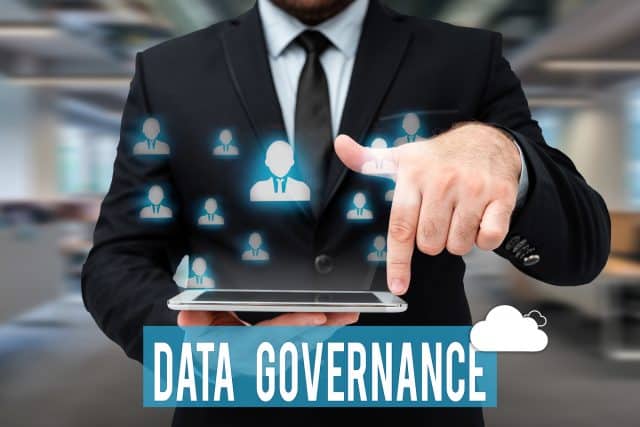Bridging the governance gap -- the rise of Data-Governance-as-a-Service

Recent years have seen an increasing emphasis on data governance, with growing levels of regulation accompanied by a widespread awareness that data is an asset with -- potentially -- huge latent value.
But, with experience and skillsets at a premium, many organizations are applying an inexact set of methodologies and tools in an attempt to manage and exploit their data assets while staying compliant.
As a result, it’s safe to say that results are mixed. For example, many organizations decide they must take action to tick the data governance box, but don’t know where to start. Then there are others who, in an attempt to make progress, purchase data governance tools but are then unable to deliver meaningful business value and outputs.
A third group are organizations that invest significant sums in tools but then struggle with ongoing, unoptimized weaknesses in their approach. And finally, some opt to initiate a data governance strategy via an in-house team. The problem here is that it can be very difficult to acquire the expertise and skillsets required to deliver usable outputs, let alone to implement a complex strategy.
For those organizations focused on delivering a win-win of compliant data governance that also unlocks better business performance, Data Governance-as-a-Service (DGaaS) has emerged as a compelling option. In particular, the outsourced, 'as-a-service' model enables organizations to address the planning, design and delivery of a data governance strategy focused more clearly on their key objectives.
How Does DGaaS Work?
The role of DGaaS is to bridge the gap between data governance objectives and results, taking the risk away from investments and delivering the experience, skillsets and proven technologies required to ensure these increasingly important initiatives succeed. Instead of defining and limiting their capabilities, technology becomes the enabler in a service-led approach to data governance.
In doing so, it emphasizes four foundational components that are essential to building strategies that avoid the common roadblocks while delivering tangible results and RoI:
- Discovery and Classification
In any successful data governance strategy, Discovery and Classification must be ubiquitous. Without this all-round insight, organizations are not only unable to identify what data they own, manage and share, but they can’t hope to understand if they are mishandling data -- and by definition -- assess their level of risk.
For example, teams with the responsibility for delivering data governance will often assume that there are tools out there that can be given access to data sources to analyze and identify governance violations instantaneously. In reality, this process is impossible without first understanding what is being looked for in the first place. The net result is that it’s unlikely governance initiatives will deliver any tangible results or benefits.
- Process creation and documentation
Process creation and documentation provides organizations with the guidance and expertise they need to help drive their plans through to execution and impact. For example, if an organization needs to implement a data minimization project, they need to understand what that entails, what people and processes are required, alongside the choice of technology tools to ensure success. In many cases, that’s simply not possible with existing in-house resources, but without it, there’s the very real risk that projects will suffer from inertia or fail entirely.
- Operational implementation
With processes and reliable documentation in place, governance strategies can then focus on building the policies and standards that need to be enforced, rather than having to worry about how to deploy and manage them. This is particularly important given the general dearth of data governance talent that currently exists. What’s more, few organizations have a management hierarchy in place to support those given responsibility for data governance, let alone effectively integrate it into the wider organization.
But, by taking the operational and expertise requirement overhead away, organizations are free to focus on creating value from their data.
- Using data governance to drive business intelligence
While the emphasis on business intelligence is understandable, legacy approaches mean the time to value can just drag on, with senior executives asking about updates, outputs and dashboards to see progress that just doesn't exist. In many cases, organizations are realistically talking about an 18-24 month rollout of a data governance program and toolset before they start seeing value. In today’s agile business environment, that’s simply too slow.
Instead, DGaaS gives organizations the ability to take the raw outputs from their governance toolsets and turn them into tangible business outputs, enabling them to deliver on even the most ambitious data governance objectives.
These are crucial considerations, because today, organizations are increasingly faced with a binary choice: embrace the opportunity that effective governance offers to deliver business growth, innovation and compliance, or risk competitive advantage and the penalties imposed by powerful regulators when it falls short.
Image credit: nialowwa/depositphotos.com

Michael Queenan is the co-founder and CEO of consultancy-led data services integrator, Nephos Technologies. A decade ago, Michael and his business partner Lee Biggenden identified a gap in the data market for a services led integrator to guide the largest organizations through the complex process of data strategy, governance and analytics. They believed this expertise would enable their customers to drive business growth, compliance and insights from their data assets.In 2012 he founded Nephos Technologies with Lee, to provide true expertise and value around data integrity and challenge organizations to think differently about one of their most valuable assets.
